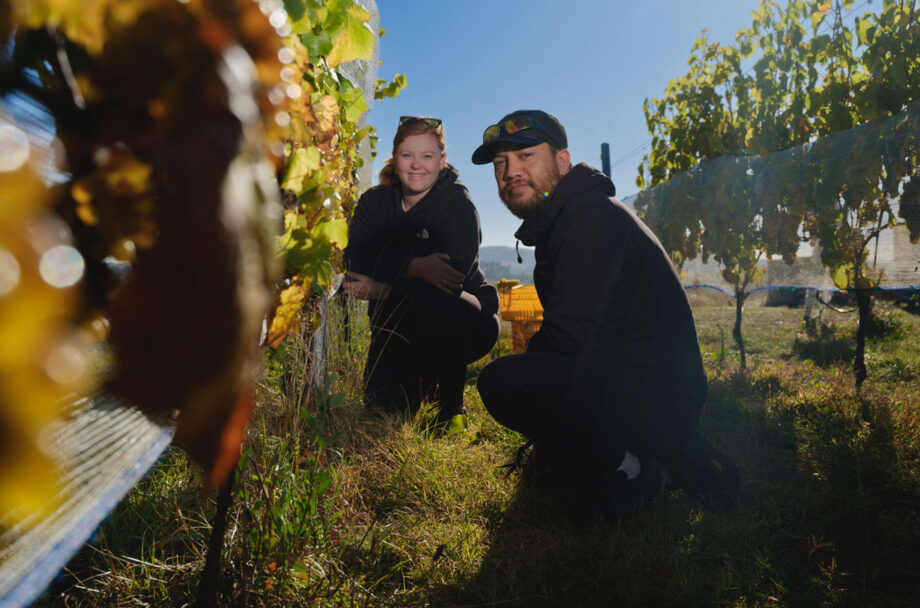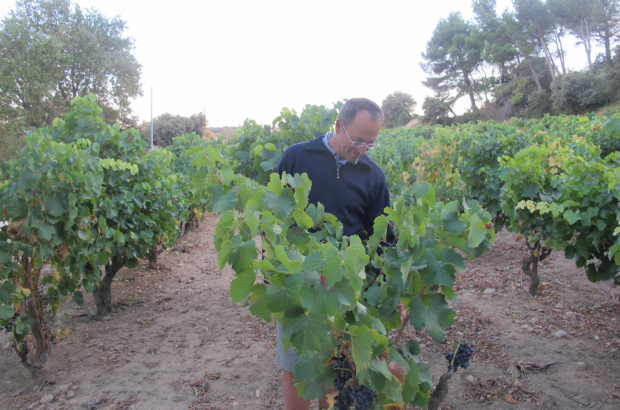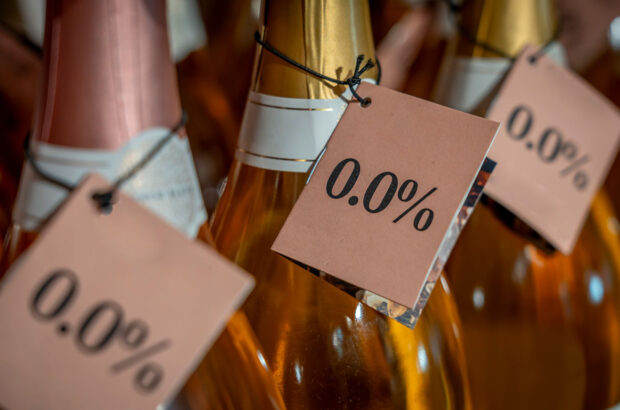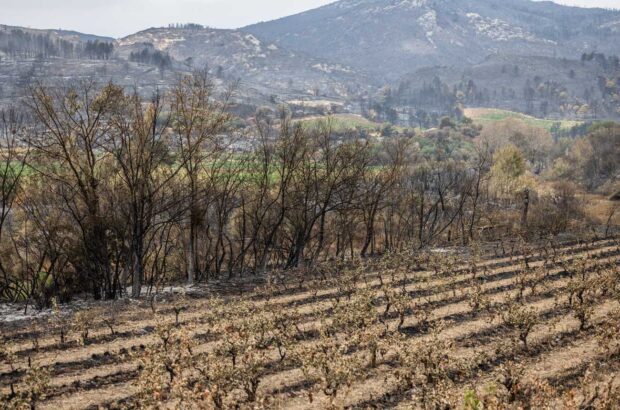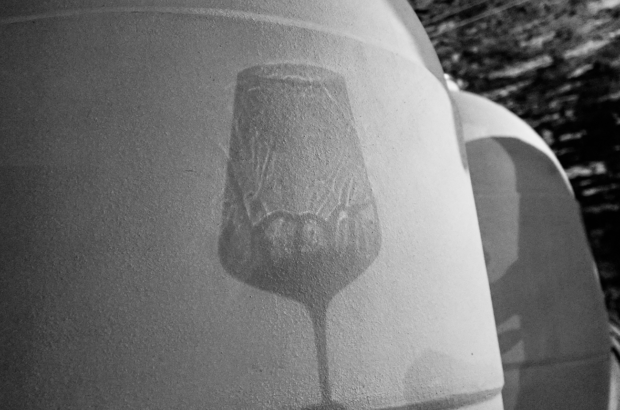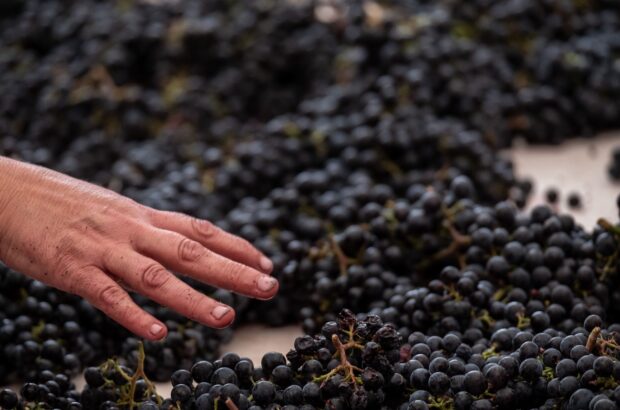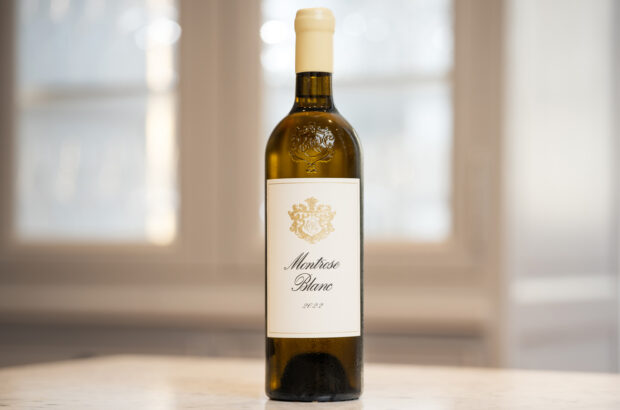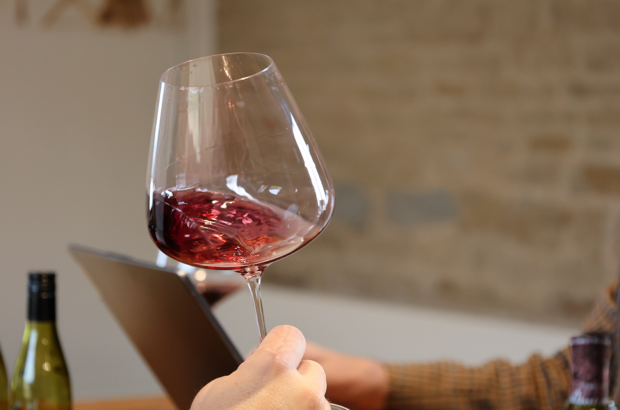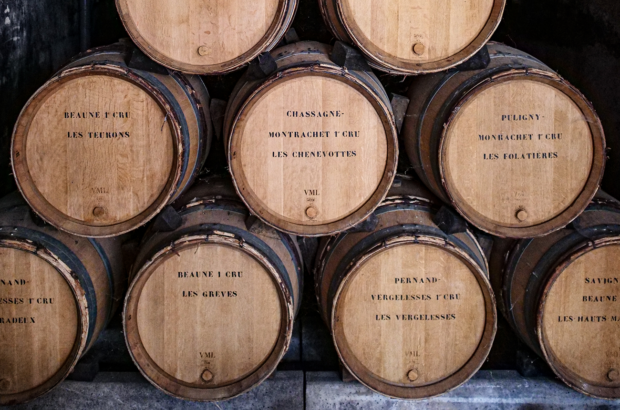Despite their deep connection to the land and food production, New Zealand’s indigenous Māori have historically had little presence in one of its highest-value modern-day agricultural products: wine.
Vines were first planted in New Zealand in 1819 by missionary Samuel Marsden and were well established by the signing of the Treaty of Waitangi in 1840.
But for much of the 20th century, Māori participation was largely limited to vineyard labour.
Meanwhile, many NZ European-owned brands freely borrowed Māori words, motifs and place names for marketing – often without consultation or understanding.
Subscribe today to read all Decanter Premium articles
{"content":"PC9wPgo8cD48ZGl2IGNsYXNzPSJhZC1jb250YWluZXIgYWQtY29udGFpbmVyLS1tb2JpbGUiPjxkaXYgaWQ9InBvc3QtaW5saW5lLTIiIGNsYXNzPSJpcGMtYWR2ZXJ0Ij48L2Rpdj48L2Rpdj48L3A+CjxoMj5TZWVkcyBvZiBjaGFuZ2U8L2gyPgo8cD5UaGF0IHBpY3R1cmUgaXMgc2hpZnRpbmcuIEEgc21hbGwgYnV0IGdyb3dpbmcgY29ob3J0IG9mIE3EgW9yaSB3aW5lbWFrZXJzIGFuZCB3aW5lIGJ1c2luZXNzZXMgYXJlIG5vdyBhc3NlcnRpbmcgYSBkaXN0aW5jdGx5IGluZGlnZW5vdXMgdm9pY2UuPC9wPgo8cD5Gcm9tIGluZGl2aWR1YWwgdGFsZW50cyBsaWtlIEphbm5pbmUgUmlja2FyZHMgKEh1bnRyZXNzKSwgUmljaGVsbGUgVHluZXkgKEdyZXl3YWNrZSksIEJlbiBUcmluaWNrIChBdGEgUmFuZ2kpLCBLZWxseSBUaG9tYXMgKFJpcHBvbikgYW5kIEJhcnJ5IFJpd2FpIChBbHBoYSBEb211cyksIHRvIGVzdGFibGlzaGVkIGNvbXBhbmllcyBzdWNoIGFzIFRvaHUgYW5kIHRoZSBUVUtVIENvbGxlY3RpdmUsIHRocm91Z2ggdG8gdGlueSBuZXdjb21lcnMgc3VjaCBhcyBUYXdoaXRpIGFuZCBUxavEgXBhZSwgTcSBb3JpIGludm9sdmVtZW50IGlzIHN0ZWFkaWx5IGJyb2FkZW5pbmcuPC9wPgo8cD5UaGVpciByaXNlIGlzIG5vdCBvbmx5IGFib3V0IHJlcHJlc2VudGF0aW9uLCBpdCBpcyBhbHNvIGJyaW5naW5nIG5ldyBpZGVhcyBhbmQgZnJhbWV3b3JrcyBmb3Igc3VzdGFpbmFiaWxpdHksIGF1dGhlbnRpY2l0eSwgaWRlbnRpdHkgYW5kIGN1bHR1cmFsIHJlc3BlY3QgdG8gYW4gaW5jcmVhc2luZ2x5IHJlY2VwdGl2ZSBzZWN0b3IuPC9wPgo8ZGl2IGNsYXNzPSJhZC1jb250YWluZXIgYWQtY29udGFpbmVyLS1tb2JpbGUiPjxkaXYgaWQ9InBvc3QtaW5saW5lLTMiIGNsYXNzPSJpcGMtYWR2ZXJ0Ij48L2Rpdj48L2Rpdj4KPGRpdiBpZD0iYXR0YWNobWVudF81NjM2NDUiIHN0eWxlPSJ3aWR0aDogMTMxMHB4IiBjbGFzcz0id3AtY2FwdGlvbiBhbGlnbm5vbmUiPjxpbWcgZmV0Y2hwcmlvcml0eT0iaGlnaCIgZGVjb2Rpbmc9ImFzeW5jIiBhcmlhLWRlc2NyaWJlZGJ5PSJjYXB0aW9uLWF0dGFjaG1lbnQtNTYzNjQ1IiBjbGFzcz0ibGF6eWxvYWQgYmx1ci11cCB3cC1pbWFnZS01NjM2NDUgc2l6ZS1mdWxsIiBkYXRhLXByb2Nlc3NlZCBzcmM9Imh0dHBzOi8vd3d3LmRlY2FudGVyLmNvbS5tYXN0ZXIucHVibGljLmtleXN0b25lLXByb2QtZWtzLWV1dzEuZnV0dXJlcGxjLmVuZ2luZWVyaW5nL3dwLWNvbnRlbnQvdGhlbWVzL3NpbWJhLXRoZW1lL2Fzc2V0cy9pbWFnZXMvcGxhY2Vob2xkZXIucG5nIiBkYXRhLXNyYz0iaHR0cHM6Ly9rZXlhc3NldHMudGltZWluY3VrLm5ldC9pbnNwaXJld3AvbGl2ZS93cC1jb250ZW50L3VwbG9hZHMvc2l0ZXMvMzQvMjAyNS8wOC9KYW5uaW5lLVJpY2thcmRzLUh1bnRyZXNzLmpwZyIgYWx0PSJKYW5uaW5lIFJpY2thcmRzIG9mIEh1bnRyZXNzIiB3aWR0aD0iMTMwMCIgaGVpZ2h0PSI4NTkiIGRhdGEtc2l6ZXM9ImF1dG8iIGRhdGEtc3Jjc2V0PSJodHRwczovL2tleWFzc2V0cy50aW1laW5jdWsubmV0L2luc3BpcmV3cC9saXZlL3dwLWNvbnRlbnQvdXBsb2Fkcy9zaXRlcy8zNC8yMDI1LzA4L0phbm5pbmUtUmlja2FyZHMtSHVudHJlc3MuanBnIDEzMDB3LCBodHRwczovL2tleWFzc2V0cy50aW1laW5jdWsubmV0L2luc3BpcmV3cC9saXZlL3dwLWNvbnRlbnQvdXBsb2Fkcy9zaXRlcy8zNC8yMDI1LzA4L0phbm5pbmUtUmlja2FyZHMtSHVudHJlc3MtMzAweDE5OC5qcGcgMzAwdywgaHR0cHM6Ly9rZXlhc3NldHMudGltZWluY3VrLm5ldC9pbnNwaXJld3AvbGl2ZS93cC1jb250ZW50L3VwbG9hZHMvc2l0ZXMvMzQvMjAyNS8wOC9KYW5uaW5lLVJpY2thcmRzLUh1bnRyZXNzLTYzMHg0MTYuanBnIDYzMHcsIGh0dHBzOi8va2V5YXNzZXRzLnRpbWVpbmN1ay5uZXQvaW5zcGlyZXdwL2xpdmUvd3AtY29udGVudC91cGxvYWRzL3NpdGVzLzM0LzIwMjUvMDgvSmFubmluZS1SaWNrYXJkcy1IdW50cmVzcy0xMzV4ODkuanBnIDEzNXcsIGh0dHBzOi8va2V5YXNzZXRzLnRpbWVpbmN1ay5uZXQvaW5zcGlyZXdwL2xpdmUvd3AtY29udGVudC91cGxvYWRzL3NpdGVzLzM0LzIwMjUvMDgvSmFubmluZS1SaWNrYXJkcy1IdW50cmVzcy0zMjB4MjExLmpwZyAzMjB3LCBodHRwczovL2tleWFzc2V0cy50aW1laW5jdWsubmV0L2luc3BpcmV3cC9saXZlL3dwLWNvbnRlbnQvdXBsb2Fkcy9zaXRlcy8zNC8yMDI1LzA4L0phbm5pbmUtUmlja2FyZHMtSHVudHJlc3MtNjIweDQxMC5qcGcgNjIwdywgaHR0cHM6Ly9rZXlhc3NldHMudGltZWluY3VrLm5ldC9pbnNwaXJld3AvbGl2ZS93cC1jb250ZW50L3VwbG9hZHMvc2l0ZXMvMzQvMjAyNS8wOC9KYW5uaW5lLVJpY2thcmRzLUh1bnRyZXNzLTkyMHg2MDguanBnIDkyMHcsIGh0dHBzOi8va2V5YXNzZXRzLnRpbWVpbmN1ay5uZXQvaW5zcGlyZXdwL2xpdmUvd3AtY29udGVudC91cGxvYWRzL3NpdGVzLzM0LzIwMjUvMDgvSmFubmluZS1SaWNrYXJkcy1IdW50cmVzcy0xMjIweDgwNi5qcGcgMTIyMHciIHNpemVzPSIobWF4LXdpZHRoOiAxMzAwcHgpIDEwMHZ3LCAxMzAwcHgiIC8+PHAgaWQ9ImNhcHRpb24tYXR0YWNobWVudC01NjM2NDUiIGNsYXNzPSJ3cC1jYXB0aW9uLXRleHQiPkphbm5pbmUgUmlja2FyZHMgb2YgSHVudHJlc3M8L3A+PC9kaXY+CjxoMj5XaGF04oCZcyBpbiBhIG5hbWU\/PC9oMj4KPHA+TcSBb3JpIGN1bHR1cmUgaGFzIGxvbmcgYmVlbiB2aXNpYmxlIG9uIE5ldyBaZWFsYW5kIHdpbmUgbGFiZWxzLCBidXQgdG9vIG9mdGVuIGF0IHN1cmZhY2UtbGV2ZWwgYXBwcm9wcmlhdGlvbi4gRXZvY2F0aXZlIG5hbWVzLCBzdHlsaXNlZCBzeW1ib2xzIG9yIDxlbT50ZSByZW8gTcSBb3JpPC9lbT4gbGFuZ3VhZ2UgYXJlIHVzZWQgYXMgYSB2ZW5lZXIgb2YgcGxhY2UuPC9wPgo8ZGl2IGNsYXNzPSJhZC1jb250YWluZXIgYWQtY29udGFpbmVyLS1tb2JpbGUiPjxkaXYgaWQ9InBvc3QtaW5saW5lLTQiIGNsYXNzPSJpcGMtYWR2ZXJ0Ij48L2Rpdj48L2Rpdj4KPHA+QXMgSGF5c2xleSBNYWNEb25hbGQsIG93bmVyIGFuZCBmb3VuZGVyIG9mIDxhIGhyZWY9Imh0dHBzOi8vd3d3LmRlY2FudGVyLmNvbS5tYXN0ZXIucHVibGljLmtleXN0b25lLXByb2QtZWtzLWV1dzEuZnV0dXJlcGxjLmVuZ2luZWVyaW5nLm1hc3Rlci5wdWJsaWMua2V5c3RvbmUtcHJvZC1la3MtZXV3MS5mdXR1cmVwbGMuZW5naW5lZXJpbmcvd2luZS93aW5lLXJlZ2lvbnMvbWFybGJvcm91Z2gvIiB0YXJnZXQ9Il9ibGFuayIgcmVsPSJub29wZW5lciI+PHN0cm9uZz5NYXJsYm9yb3VnaDwvc3Ryb25nPjwvYT7igJlzIHRlIFDEgSBXaW5lcywgaGFzIHBvaW50ZWQgb3V0OiDigJhUaGVyZSBhcmUgYSBsb3Qgb2YgZm9yZWlnbiBjb21wYW5pZXMgdGhhdCB3YW50IHRvIGJlIE3EgW9yaS4gVGhleSBnZXQgYSB3aW5lIGJyYW5kIHdpdGggYSBNxIFvcmkgbmFtZSwgd2hhY2sgYSBsYWJlbCBvbiBhIGJvdHRsZSBhbmQgc2VsbCBpdCBhcm91bmQgdGhlIHdvcmxkLiBUaGF04oCZcyBhIHRvdWdoIG9uZSB3aGVuIHlvdSBhcmUgTcSBb3JpOyB5b3Ugc2VlIHlvdXIgbmFtZXMgYW5kIHBsYWNlcyBiZWluZyByaXBwZWQgb2ZmLuKAmTwvcD4KPHA+VGhlIHJpc2Ugb2YgZ2VudWluZSBNxIFvcmktb3duZWQgcHJvZHVjZXJzIG9mZmVycyBhIGNvdW50ZXJiYWxhbmNlLCBidXQgY3VsdHVyYWwgc2Vuc2l0aXZpdHkgcmVtYWlucyBwYXJhbW91bnQuIENlcnRhaW4gY29uY2VwdHMsIHBhcnRpY3VsYXJseSB0aG9zZSB0aWVkIHRvIDxlbT50YXB1PC9lbT4gKHNhY3JlZCkgdHJhZGl0aW9ucywgcmlzayBiZWluZyB0cml2aWFsaXNlZCBpZiB1c2VkIGNhc3VhbGx5IGluIGFzc29jaWF0aW9uIHdpdGggYWxjb2hvbC48L3A+CjxkaXYgY2xhc3M9ImFkLWNvbnRhaW5lciBhZC1jb250YWluZXItLW1vYmlsZSI+PGRpdiBpZD0icG9zdC1pbmxpbmUtNSIgY2xhc3M9ImlwYy1hZHZlcnQiPjwvZGl2PjwvZGl2Pgo8cD5HcmV5d2Fja2Ugd2luZW1ha2VyIFR5bmV5IGV4cGxhaW5zOiDigJhXaW5lcmllcyB3b3VsZCBqdXN0IGdyYWIgc29tZSBjb25jZXB0IG91dCBvZiB0aGUgYWlyIGFuZCBzdGljayBpdCBvbiB0aGVpciBib3R0bGUsIHdpdGhvdXQgdGhpbmtpbmcgYWJvdXQgdGhlIGNvbnNlcXVlbmNlcy7igJk8L3A+CjxwPlRoZSBNxIFvcmkgQWR2aXNvcnkgQ29tbWl0dGVlcyBvZiB0aGUgSW50ZWxsZWN0dWFsIFByb3BlcnR5IE9mZmljZSBvZiBOZXcgWmVhbGFuZCBub3cgaGVscCBhc3Nlc3MgdHJhZGVtYXJrcyBvciBicmFuZGluZyBwcm9wb3NhbHMgdG8gcHJldmVudCBzdWNoIG1pc3VzZS48L3A+CjxkaXYgaWQ9ImF0dGFjaG1lbnRfNTYzNjQ0IiBzdHlsZT0id2lkdGg6IDEzMTBweCIgY2xhc3M9IndwLWNhcHRpb24gYWxpZ25ub25lIj48aW1nIGRlY29kaW5nPSJhc3luYyIgYXJpYS1kZXNjcmliZWRieT0iY2FwdGlvbi1hdHRhY2htZW50LTU2MzY0NCIgY2xhc3M9Imxhenlsb2FkIGJsdXItdXAgd3AtaW1hZ2UtNTYzNjQ0IHNpemUtZnVsbCIgZGF0YS1wcm9jZXNzZWQgc3JjPSJodHRwczovL3d3dy5kZWNhbnRlci5jb20ubWFzdGVyLnB1YmxpYy5rZXlzdG9uZS1wcm9kLWVrcy1ldXcxLmZ1dHVyZXBsYy5lbmdpbmVlcmluZy93cC1jb250ZW50L3RoZW1lcy9zaW1iYS10aGVtZS9hc3NldHMvaW1hZ2VzL3BsYWNlaG9sZGVyLnBuZyIgZGF0YS1zcmM9Imh0dHBzOi8va2V5YXNzZXRzLnRpbWVpbmN1ay5uZXQvaW5zcGlyZXdwL2xpdmUvd3AtY29udGVudC91cGxvYWRzL3NpdGVzLzM0LzIwMjUvMDgvSGF5c2xleS1NYWNEb25hbGQtdGUtUGEuanBnIiBhbHQ9IkhheXNsZXkgTWFjRG9uYWxkLCBvd25lciBhbmQgZm91bmRlciBvZiBNYXJsYm9yb3VnaOKAmXMgdGUgUMSBIFdpbmVzIiB3aWR0aD0iMTMwMCIgaGVpZ2h0PSI4NjAiIGRhdGEtc2l6ZXM9ImF1dG8iIGRhdGEtc3Jjc2V0PSJodHRwczovL2tleWFzc2V0cy50aW1laW5jdWsubmV0L2luc3BpcmV3cC9saXZlL3dwLWNvbnRlbnQvdXBsb2Fkcy9zaXRlcy8zNC8yMDI1LzA4L0hheXNsZXktTWFjRG9uYWxkLXRlLVBhLmpwZyAxMzAwdywgaHR0cHM6Ly9rZXlhc3NldHMudGltZWluY3VrLm5ldC9pbnNwaXJld3AvbGl2ZS93cC1jb250ZW50L3VwbG9hZHMvc2l0ZXMvMzQvMjAyNS8wOC9IYXlzbGV5LU1hY0RvbmFsZC10ZS1QYS0zMDB4MTk4LmpwZyAzMDB3LCBodHRwczovL2tleWFzc2V0cy50aW1laW5jdWsubmV0L2luc3BpcmV3cC9saXZlL3dwLWNvbnRlbnQvdXBsb2Fkcy9zaXRlcy8zNC8yMDI1LzA4L0hheXNsZXktTWFjRG9uYWxkLXRlLVBhLTYzMHg0MTcuanBnIDYzMHcsIGh0dHBzOi8va2V5YXNzZXRzLnRpbWVpbmN1ay5uZXQvaW5zcGlyZXdwL2xpdmUvd3AtY29udGVudC91cGxvYWRzL3NpdGVzLzM0LzIwMjUvMDgvSGF5c2xleS1NYWNEb25hbGQtdGUtUGEtMTM1eDg5LmpwZyAxMzV3LCBodHRwczovL2tleWFzc2V0cy50aW1laW5jdWsubmV0L2luc3BpcmV3cC9saXZlL3dwLWNvbnRlbnQvdXBsb2Fkcy9zaXRlcy8zNC8yMDI1LzA4L0hheXNsZXktTWFjRG9uYWxkLXRlLVBhLTMyMHgyMTIuanBnIDMyMHcsIGh0dHBzOi8va2V5YXNzZXRzLnRpbWVpbmN1ay5uZXQvaW5zcGlyZXdwL2xpdmUvd3AtY29udGVudC91cGxvYWRzL3NpdGVzLzM0LzIwMjUvMDgvSGF5c2xleS1NYWNEb25hbGQtdGUtUGEtNjIweDQxMC5qcGcgNjIwdywgaHR0cHM6Ly9rZXlhc3NldHMudGltZWluY3VrLm5ldC9pbnNwaXJld3AvbGl2ZS93cC1jb250ZW50L3VwbG9hZHMvc2l0ZXMvMzQvMjAyNS8wOC9IYXlzbGV5LU1hY0RvbmFsZC10ZS1QYS05MjB4NjA5LmpwZyA5MjB3LCBodHRwczovL2tleWFzc2V0cy50aW1laW5jdWsubmV0L2luc3BpcmV3cC9saXZlL3dwLWNvbnRlbnQvdXBsb2Fkcy9zaXRlcy8zNC8yMDI1LzA4L0hheXNsZXktTWFjRG9uYWxkLXRlLVBhLTEyMjB4ODA3LmpwZyAxMjIwdyIgc2l6ZXM9IihtYXgtd2lkdGg6IDEzMDBweCkgMTAwdncsIDEzMDBweCIgLz48cCBpZD0iY2FwdGlvbi1hdHRhY2htZW50LTU2MzY0NCIgY2xhc3M9IndwLWNhcHRpb24tdGV4dCI+SGF5c2xleSBNYWNEb25hbGQsIG93bmVyIGFuZCBmb3VuZGVyIG9mIHRlIFDEgSBXaW5lczwvcD48L2Rpdj4KPGgyPlJlY2xhaW1pbmcgYWdlbmN5PC9oMj4KPHA+VGhlIHJlbGF0aW9uc2hpcCBiZXR3ZWVuIE3EgW9yaSBjdWx0dXJlIGFuZCBhbGNvaG9sIGlzIGNvbXBsZXguIEFsY29ob2wgd2FzIG5vdCB0cmFkaXRpb25hbGx5IHBhcnQgb2YgTcSBb3JpIGxpZmUsIGFuZCB0aGUgbGVnYWN5IG9mIDxhIGhyZWY9Imh0dHBzOi8vd3d3LmRlY2FudGVyLmNvbS5tYXN0ZXIucHVibGljLmtleXN0b25lLXByb2QtZWtzLWV1dzEuZnV0dXJlcGxjLmVuZ2luZWVyaW5nLm1hc3Rlci5wdWJsaWMua2V5c3RvbmUtcHJvZC1la3MtZXV3MS5mdXR1cmVwbGMuZW5naW5lZXJpbmcvd2luZS9lbXBpcmUtdmluZS00OTc3NTUvIiB0YXJnZXQ9Il9ibGFuayIgcmVsPSJub29wZW5lciI+PHN0cm9uZz5jb2xvbmlhbGlzbTwvc3Ryb25nPjwvYT4gbWVhbnMgTcSBb3JpIGNvbW11bml0aWVzIHRvZGF5IOKAkyBhcyB3aXRoIG90aGVyIGluZGlnZW5vdXMgY29tbXVuaXRpZXMgd29ybGR3aWRlIOKAkyBhcmUgb3ZlcnJlcHJlc2VudGVkIGluIHN0YXRpc3RpY3Mgb24gYWRkaWN0aW9uIGFuZCBwb3ZlcnR5LjwvcD4KPHA+VGhlIHRlbnNpb24gb2Ygd2hldGhlciB3aW5lIGlzIGFuIGFwcHJvcHJpYXRlIHBhdGh3YXkgZm9yIE3EgW9yaSBkZXZlbG9wbWVudCBpcyBhY2tub3dsZWRnZWQuIFRoZSBnb2FsIGlzIG5vdCB0byByb21hbnRpY2lzZSBhbGNvaG9sLCBidXQgdG8gcmVjbGFpbSBhZ2VuY3ksIGNyZWF0ZSBvcHBvcnR1bml0aWVzIGZvciBNxIFvcmksIGFuZCBlbWJlZCBjdWx0dXJhbCB2YWx1ZXMgaW4gYSBzaWduaWZpY2FudCBpbmR1c3RyeS48L3A+CjxwPkFzIE1hdHVhIE11cnVwYWVuZ2EsIGNvLWZvdW5kZXIgd2l0aCBwYXJ0bmVyIEltb2dlbiBXZWlyIG9mIFRhd2hpdGkgV2luZXMgPGVtPihhYm92ZSk8L2VtPiwgcHV0cyBpdDog4oCYQSBsb3Qgb2YgdGhlIHJlYXNvbmluZyBiZWhpbmQgZG9pbmcgdGhpcyB3YXMgYmVjYXVzZSBJIHdhcyBtb2FuaW5nIGFib3V0IGFsbCB0aGVzZSB3aW5lcyB3aXRoIE3EgW9yaSBuYW1lcyBvbiB0aGUgbGFiZWxzIHdoZXJlIG5vdGhpbmcgZWxzZSBhYm91dCBpdCBpcyBNxIFvcmkuIFlvdSBjYW4gb25seSBtb2FuIGZvciBzbyBsb25nLCB0aGVuIHlvdeKAmXZlIGdvdCB0byBkbyBzb21ldGhpbmcgYWJvdXQgaXQu4oCZPC9wPgo8ZGl2IGlkPSJhdHRhY2htZW50XzU2MzY0OCIgc3R5bGU9IndpZHRoOiAxMzEwcHgiIGNsYXNzPSJ3cC1jYXB0aW9uIGFsaWdubm9uZSI+PGltZyBkZWNvZGluZz0iYXN5bmMiIGFyaWEtZGVzY3JpYmVkYnk9ImNhcHRpb24tYXR0YWNobWVudC01NjM2NDgiIGNsYXNzPSJsYXp5bG9hZCBibHVyLXVwIHdwLWltYWdlLTU2MzY0OCBzaXplLWZ1bGwiIGRhdGEtcHJvY2Vzc2VkIHNyYz0iaHR0cHM6Ly93d3cuZGVjYW50ZXIuY29tLm1hc3Rlci5wdWJsaWMua2V5c3RvbmUtcHJvZC1la3MtZXV3MS5mdXR1cmVwbGMuZW5naW5lZXJpbmcvd3AtY29udGVudC90aGVtZXMvc2ltYmEtdGhlbWUvYXNzZXRzL2ltYWdlcy9wbGFjZWhvbGRlci5wbmciIGRhdGEtc3JjPSJodHRwczovL2tleWFzc2V0cy50aW1laW5jdWsubmV0L2luc3BpcmV3cC9saXZlL3dwLWNvbnRlbnQvdXBsb2Fkcy9zaXRlcy8zNC8yMDI1LzA4L0ltb2dlbi1XZWlyLWFuZC1NYXR1YS1NdXJ1cGFlbmdhLVRhd2hpdGkuanBnIiBhbHQ9Ik1hdHVhIE11cnVwYWVuZ2EsIGNvLWZvdW5kZXIgd2l0aCBwYXJ0bmVyIEltb2dlbiBXZWlyIG9mIFRhd2hpdGkgV2luZXMiIHdpZHRoPSIxMzAwIiBoZWlnaHQ9Ijg2MCIgZGF0YS1zaXplcz0iYXV0byIgZGF0YS1zcmNzZXQ9Imh0dHBzOi8va2V5YXNzZXRzLnRpbWVpbmN1ay5uZXQvaW5zcGlyZXdwL2xpdmUvd3AtY29udGVudC91cGxvYWRzL3NpdGVzLzM0LzIwMjUvMDgvSW1vZ2VuLVdlaXItYW5kLU1hdHVhLU11cnVwYWVuZ2EtVGF3aGl0aS5qcGcgMTMwMHcsIGh0dHBzOi8va2V5YXNzZXRzLnRpbWVpbmN1ay5uZXQvaW5zcGlyZXdwL2xpdmUvd3AtY29udGVudC91cGxvYWRzL3NpdGVzLzM0LzIwMjUvMDgvSW1vZ2VuLVdlaXItYW5kLU1hdHVhLU11cnVwYWVuZ2EtVGF3aGl0aS0zMDB4MTk4LmpwZyAzMDB3LCBodHRwczovL2tleWFzc2V0cy50aW1laW5jdWsubmV0L2luc3BpcmV3cC9saXZlL3dwLWNvbnRlbnQvdXBsb2Fkcy9zaXRlcy8zNC8yMDI1LzA4L0ltb2dlbi1XZWlyLWFuZC1NYXR1YS1NdXJ1cGFlbmdhLVRhd2hpdGktNjMweDQxNy5qcGcgNjMwdywgaHR0cHM6Ly9rZXlhc3NldHMudGltZWluY3VrLm5ldC9pbnNwaXJld3AvbGl2ZS93cC1jb250ZW50L3VwbG9hZHMvc2l0ZXMvMzQvMjAyNS8wOC9JbW9nZW4tV2Vpci1hbmQtTWF0dWEtTXVydXBhZW5nYS1UYXdoaXRpLTEzNXg4OS5qcGcgMTM1dywgaHR0cHM6Ly9rZXlhc3NldHMudGltZWluY3VrLm5ldC9pbnNwaXJld3AvbGl2ZS93cC1jb250ZW50L3VwbG9hZHMvc2l0ZXMvMzQvMjAyNS8wOC9JbW9nZW4tV2Vpci1hbmQtTWF0dWEtTXVydXBhZW5nYS1UYXdoaXRpLTMyMHgyMTIuanBnIDMyMHcsIGh0dHBzOi8va2V5YXNzZXRzLnRpbWVpbmN1ay5uZXQvaW5zcGlyZXdwL2xpdmUvd3AtY29udGVudC91cGxvYWRzL3NpdGVzLzM0LzIwMjUvMDgvSW1vZ2VuLVdlaXItYW5kLU1hdHVhLU11cnVwYWVuZ2EtVGF3aGl0aS02MjB4NDEwLmpwZyA2MjB3LCBodHRwczovL2tleWFzc2V0cy50aW1laW5jdWsubmV0L2luc3BpcmV3cC9saXZlL3dwLWNvbnRlbnQvdXBsb2Fkcy9zaXRlcy8zNC8yMDI1LzA4L0ltb2dlbi1XZWlyLWFuZC1NYXR1YS1NdXJ1cGFlbmdhLVRhd2hpdGktOTIweDYwOS5qcGcgOTIwdywgaHR0cHM6Ly9rZXlhc3NldHMudGltZWluY3VrLm5ldC9pbnNwaXJld3AvbGl2ZS93cC1jb250ZW50L3VwbG9hZHMvc2l0ZXMvMzQvMjAyNS8wOC9JbW9nZW4tV2Vpci1hbmQtTWF0dWEtTXVydXBhZW5nYS1UYXdoaXRpLTEyMjB4ODA3LmpwZyAxMjIwdyIgc2l6ZXM9IihtYXgtd2lkdGg6IDEzMDBweCkgMTAwdncsIDEzMDBweCIgLz48cCBpZD0iY2FwdGlvbi1hdHRhY2htZW50LTU2MzY0OCIgY2xhc3M9IndwLWNhcHRpb24tdGV4dCI+TWF0dWEgTXVydXBhZW5nYSAocmlnaHQpIGFuZCBJbW9nZW4gV2VpciwgY28tZm91bmRlcnMgb2YgVGF3aGl0aSBXaW5lczwvcD48L2Rpdj4KPGgyPlByb3RlY3RpbmcgdGhlIGxhbmQ8L2gyPgo8cD5XaGF0IGluY3JlYXNpbmdseSBkaXN0aW5ndWlzaGVzIE3EgW9yaSBwcm9kdWNlcnMgaXMgbm90IG9ubHkgY3VsdHVyYWwgcmVwcmVzZW50YXRpb24sIGJ1dCBob3cgdGhleSBhcHByb2FjaCB0aGUgbGFuZC48L3A+CjxwPkNlbnRyYWwgdG8gdGhpcyBpcyA8ZW0+a2FpdGlha2l0YW5nYTwvZW0+LCBhIHByaW5jaXBsZSB0aGF0IGxvb3NlbHkgdHJhbnNsYXRlcyBhcyBndWFyZGlhbnNoaXAuIEl0IGlzIGJvdGggcHJhY3RpY2FsIGFuZCBzcGlyaXR1YWwg4oCTIGZhcm1pbmcgbm90IGp1c3QgZm9yIHByb2ZpdCB0b2RheSBidXQgYWxzbyBmb3IgdGhlIHdlbGwtYmVpbmcgb2YgZnV0dXJlIGdlbmVyYXRpb25zLjwvcD4KPHA+VGhpcyBwZXJzcGVjdGl2ZSByZXNvbmF0ZXMgc3Ryb25nbHkgd2l0aCB0aGUgZ2xvYmFsIHNoaWZ0IHRvd2FyZHMgPGEgaHJlZj0iaHR0cHM6Ly93d3cuZGVjYW50ZXIuY29tLm1hc3Rlci5wdWJsaWMua2V5c3RvbmUtcHJvZC1la3MtZXV3MS5mdXR1cmVwbGMuZW5naW5lZXJpbmcubWFzdGVyLnB1YmxpYy5rZXlzdG9uZS1wcm9kLWVrcy1ldXcxLmZ1dHVyZXBsYy5lbmdpbmVlcmluZy93aW5lL3RoZS1ldGhpY2FsLWRyaW5rZXItbm92ZW1iZXItMjAyNC01NDM1MzcvIiB0YXJnZXQ9Il9ibGFuayIgcmVsPSJub29wZW5lciI+PHN0cm9uZz5yZWdlbmVyYXRpdmUgYWdyaWN1bHR1cmU8L3N0cm9uZz48L2E+LjwvcD4KPHA+TG9uZyBiZWZvcmUgdGhlIHRlcm0g4oCYcmVnZW7igJkgYmVjYW1lIGEgYnV6endvcmQsIE3EgW9yaSBmYXJtaW5nIHdhcyBndWlkZWQgYnkgPGVtPm1hcmFtYXRha2E8L2VtPiAodGhlIGx1bmFyIGFuZCBhc3Ryb25vbWljYWwgY2FsZW5kYXJzIHRoYXQgZGlyZWN0ZWQgcGxhbnRpbmcsIGh1bnRpbmcgYW5kIGZpc2hpbmcpLCB3aGljaCBlbXBoYXNpc2VkIGN5Y2xpY2FsIGJhbGFuY2UsIHNvaWwgaGVhbHRoIGFuZCBjb21tdW5pdHkgd2VsbC1iZWluZy48L3A+CjxwPk1hcmxib3JvdWdoLWJhc2VkIFdha2F0xassIHdoaWNoIG93bnMgVG9odSBXaW5lcyDigJMgdGhlIGZpcnN0IE3EgW9yaS1vd25lZCB3aW5lcnksIGZvdW5kZWQgaW4gMTk5OCDigJMgb3BlcmF0ZXMgdW5kZXIgYSA1MDAteWVhciBidXNpbmVzcyBwbGFuLiBUaGF0IGhvcml6b24gc3BlYWtzIHZvbHVtZXMgYWJvdXQgdGhlIE3EgW9yaSB3b3JsZHZpZXcsIHdoZXJlIHN0ZXdhcmRzaGlwIGV4dGVuZHMgd2VsbCBiZXlvbmQgdGhlIHByZXNlbnQuPC9wPgo8ZGl2IGlkPSJhdHRhY2htZW50XzU2MzY0OSIgc3R5bGU9IndpZHRoOiAxMzEwcHgiIGNsYXNzPSJ3cC1jYXB0aW9uIGFsaWdubm9uZSI+PGltZyBsb2FkaW5nPSJsYXp5IiBkZWNvZGluZz0iYXN5bmMiIGFyaWEtZGVzY3JpYmVkYnk9ImNhcHRpb24tYXR0YWNobWVudC01NjM2NDkiIGNsYXNzPSJsYXp5bG9hZCBibHVyLXVwIHdwLWltYWdlLTU2MzY0OSBzaXplLWZ1bGwiIGRhdGEtcHJvY2Vzc2VkIHNyYz0iaHR0cHM6Ly93d3cuZGVjYW50ZXIuY29tLm1hc3Rlci5wdWJsaWMua2V5c3RvbmUtcHJvZC1la3MtZXV3MS5mdXR1cmVwbGMuZW5naW5lZXJpbmcvd3AtY29udGVudC90aGVtZXMvc2ltYmEtdGhlbWUvYXNzZXRzL2ltYWdlcy9wbGFjZWhvbGRlci5wbmciIGRhdGEtc3JjPSJodHRwczovL2tleWFzc2V0cy50aW1laW5jdWsubmV0L2luc3BpcmV3cC9saXZlL3dwLWNvbnRlbnQvdXBsb2Fkcy9zaXRlcy8zNC8yMDI1LzA4L1RvaHUtV2hlbnVhLUF3YS12aW5leWFyZC1zaWduLmpwZyIgYWx0PSJUb2h1IFdpbmVzLCB0aGUgZmlyc3QgTcSBb3JpLW93bmVkIHdpbmVyeSwgd2FzIGZvdW5kZWQgaW4gMTk5OCIgd2lkdGg9IjEzMDAiIGhlaWdodD0iODYwIiBkYXRhLXNpemVzPSJhdXRvIiBkYXRhLXNyY3NldD0iaHR0cHM6Ly9rZXlhc3NldHMudGltZWluY3VrLm5ldC9pbnNwaXJld3AvbGl2ZS93cC1jb250ZW50L3VwbG9hZHMvc2l0ZXMvMzQvMjAyNS8wOC9Ub2h1LVdoZW51YS1Bd2EtdmluZXlhcmQtc2lnbi5qcGcgMTMwMHcsIGh0dHBzOi8va2V5YXNzZXRzLnRpbWVpbmN1ay5uZXQvaW5zcGlyZXdwL2xpdmUvd3AtY29udGVudC91cGxvYWRzL3NpdGVzLzM0LzIwMjUvMDgvVG9odS1XaGVudWEtQXdhLXZpbmV5YXJkLXNpZ24tMzAweDE5OC5qcGcgMzAwdywgaHR0cHM6Ly9rZXlhc3NldHMudGltZWluY3VrLm5ldC9pbnNwaXJld3AvbGl2ZS93cC1jb250ZW50L3VwbG9hZHMvc2l0ZXMvMzQvMjAyNS8wOC9Ub2h1LVdoZW51YS1Bd2EtdmluZXlhcmQtc2lnbi02MzB4NDE3LmpwZyA2MzB3LCBodHRwczovL2tleWFzc2V0cy50aW1laW5jdWsubmV0L2luc3BpcmV3cC9saXZlL3dwLWNvbnRlbnQvdXBsb2Fkcy9zaXRlcy8zNC8yMDI1LzA4L1RvaHUtV2hlbnVhLUF3YS12aW5leWFyZC1zaWduLTEzNXg4OS5qcGcgMTM1dywgaHR0cHM6Ly9rZXlhc3NldHMudGltZWluY3VrLm5ldC9pbnNwaXJld3AvbGl2ZS93cC1jb250ZW50L3VwbG9hZHMvc2l0ZXMvMzQvMjAyNS8wOC9Ub2h1LVdoZW51YS1Bd2EtdmluZXlhcmQtc2lnbi0zMjB4MjEyLmpwZyAzMjB3LCBodHRwczovL2tleWFzc2V0cy50aW1laW5jdWsubmV0L2luc3BpcmV3cC9saXZlL3dwLWNvbnRlbnQvdXBsb2Fkcy9zaXRlcy8zNC8yMDI1LzA4L1RvaHUtV2hlbnVhLUF3YS12aW5leWFyZC1zaWduLTYyMHg0MTAuanBnIDYyMHcsIGh0dHBzOi8va2V5YXNzZXRzLnRpbWVpbmN1ay5uZXQvaW5zcGlyZXdwL2xpdmUvd3AtY29udGVudC91cGxvYWRzL3NpdGVzLzM0LzIwMjUvMDgvVG9odS1XaGVudWEtQXdhLXZpbmV5YXJkLXNpZ24tOTIweDYwOS5qcGcgOTIwdywgaHR0cHM6Ly9rZXlhc3NldHMudGltZWluY3VrLm5ldC9pbnNwaXJld3AvbGl2ZS93cC1jb250ZW50L3VwbG9hZHMvc2l0ZXMvMzQvMjAyNS8wOC9Ub2h1LVdoZW51YS1Bd2EtdmluZXlhcmQtc2lnbi0xMjIweDgwNy5qcGcgMTIyMHciIHNpemVzPSIobWF4LXdpZHRoOiAxMzAwcHgpIDEwMHZ3LCAxMzAwcHgiIC8+PHAgaWQ9ImNhcHRpb24tYXR0YWNobWVudC01NjM2NDkiIGNsYXNzPSJ3cC1jYXB0aW9uLXRleHQiPlRvaHUgV2luZXMsIHRoZSBmaXJzdCBNxIFvcmktb3duZWQgd2luZXJ5LCB3YXMgZm91bmRlZCBpbiAxOTk4PC9wPjwvZGl2Pgo8aDI+UGFzdCwgcHJlc2VudCBhbmQgZnV0dXJlPC9oMj4KPHA+4oCYRm9yIHVzLCA8ZW0+VGUgQW8gTcSBb3JpPC9lbT4gKHRoZSBNxIFvcmkgd29ybGR2aWV3KSBpcyBmdW5kYW1lbnRhbGx5IHdobyB3ZSBhcmUuIEl0IGlzIG91ciBpZGVudGl0eSwgZ3VpZGVzIGhvdyB3ZSB3b3JrLCBhbmQgY29udGludWFsbHkgcmVtaW5kcyB1cyBvZiBvdXIgcHVycG9zZSzigJkgc2F5cyBKb2UgSGFuaXRhLCA8ZW0+dHVtdSB3aGFrYXJhZTwvZW0+IChDRU8pIG9mIFdha2F0xasuPC9wPgo8cD7igJhPdXIgc3RvcnkgYmVnYW4gd2l0aCBvdXIgPGVtPnTFq3B1bmE8L2VtPiAoYW5jZXN0b3JzKSB3aG8gd2lsbCBhbHdheXMgYmUgb3VyIGJpZ2dlc3QgaW5mbHVlbmNlLiBUaGUgbGVnYWN5IHRoYXQgdGhleSBoYXZlIGVudHJ1c3RlZCB0byB1cyBnaXZlcyB1cyB0aGUgb3Bwb3J0dW5pdHkgdG8gdGVsbCBvdXIgc3RvcnksIGdyb3cgb3VyIGludGVyZXN0cywgYW5kIGNvbm5lY3QgcGVvcGxlIHdpdGggcGxhY2Us4oCZIGhlIGFkZHMuPC9wPgo8cD5WZXRlcmFuIHdpbmVtYWtlciBhbmQgY29uc3VsdGFudCwgSmVmZiBTaW5ub3R0LCBmcmFtZXMgdGhpcyBjb25uZWN0aW9uIHRocm91Z2ggPGVtPnTFq3Jhbmdhd2Fld2FlPC9lbT4g4oCTIOKAmHRoZSBwbGFjZSB3aGVyZSB5b3Ugc3RhbmTigJkg4oCTIGEgY29uY2VwdCBha2luIHRvIHRlcnJvaXIuPC9wPgo8cD7igJhUbyBtZSB0aGVyZSBpcyBncmVhdCBhbGlnbm1lbnQgYmV0d2VlbiA8ZW0+S2F1cGFwYTwvZW0+IChwcmluY2lwbGVzKSA8ZW0+TcSBb3JpPC9lbT4gYW5kIHRoZSBwcmluY2lwbGVzIG9mIDxhIGhyZWY9Imh0dHBzOi8vd3d3LmRlY2FudGVyLmNvbS5tYXN0ZXIucHVibGljLmtleXN0b25lLXByb2QtZWtzLWV1dzEuZnV0dXJlcGxjLmVuZ2luZWVyaW5nLm1hc3Rlci5wdWJsaWMua2V5c3RvbmUtcHJvZC1la3MtZXV3MS5mdXR1cmVwbGMuZW5naW5lZXJpbmcvbGVhcm4vc3VzdGFpbmFiaWxpdHktaW4td2luZS1leHBsYWluZWQtNDc4ODAzLyIgdGFyZ2V0PSJfYmxhbmsiIHJlbD0ibm9vcGVuZXIiPjxzdHJvbmc+c3VzdGFpbmFibGUgd2luZWdyb3dpbmc8L3N0cm9uZz48L2E+LiBUaGUgdW5pcXVlIG11bHRpLWdlbmVyYXRpb25hbCBwZXJzcGVjdGl2ZSB0aGF0IGV4aXN0cyBpbiA8ZW0+VGUgQW8gTcSBb3JpPC9lbT4sIHRoZSBpZGVhIG9mIHRoZSBpbnRlcmNvbm5lY3RlZG5lc3Mgb2YgZXZlcnl0aGluZywgYnJpbmdzIGEgbG90IG9mIHByaW5jaXBsZXMgaW50byBvbmUgcGxhY2Us4oCZIGhlIHNheXMuPC9wPgo8ZGl2IGlkPSJhdHRhY2htZW50XzU2MzY1MCIgc3R5bGU9IndpZHRoOiAxMzEwcHgiIGNsYXNzPSJ3cC1jYXB0aW9uIGFsaWdubm9uZSI+PGltZyBsb2FkaW5nPSJsYXp5IiBkZWNvZGluZz0iYXN5bmMiIGFyaWEtZGVzY3JpYmVkYnk9ImNhcHRpb24tYXR0YWNobWVudC01NjM2NTAiIGNsYXNzPSJsYXp5bG9hZCBibHVyLXVwIHdwLWltYWdlLTU2MzY1MCBzaXplLWZ1bGwiIGRhdGEtcHJvY2Vzc2VkIHNyYz0iaHR0cHM6Ly93d3cuZGVjYW50ZXIuY29tLm1hc3Rlci5wdWJsaWMua2V5c3RvbmUtcHJvZC1la3MtZXV3MS5mdXR1cmVwbGMuZW5naW5lZXJpbmcvd3AtY29udGVudC90aGVtZXMvc2ltYmEtdGhlbWUvYXNzZXRzL2ltYWdlcy9wbGFjZWhvbGRlci5wbmciIGRhdGEtc3JjPSJodHRwczovL2tleWFzc2V0cy50aW1laW5jdWsubmV0L2luc3BpcmV3cC9saXZlL3dwLWNvbnRlbnQvdXBsb2Fkcy9zaXRlcy8zNC8yMDI1LzA4L0dyZXl3YWNrZS1SaWNoZWxsZS1UeW5leS5qcGciIGFsdD0iUmljaGVsbGUgVHluZXkgb2YgR3JleXdhY2tlIiB3aWR0aD0iMTMwMCIgaGVpZ2h0PSI4NjEiIGRhdGEtc2l6ZXM9ImF1dG8iIGRhdGEtc3Jjc2V0PSJodHRwczovL2tleWFzc2V0cy50aW1laW5jdWsubmV0L2luc3BpcmV3cC9saXZlL3dwLWNvbnRlbnQvdXBsb2Fkcy9zaXRlcy8zNC8yMDI1LzA4L0dyZXl3YWNrZS1SaWNoZWxsZS1UeW5leS5qcGcgMTMwMHcsIGh0dHBzOi8va2V5YXNzZXRzLnRpbWVpbmN1ay5uZXQvaW5zcGlyZXdwL2xpdmUvd3AtY29udGVudC91cGxvYWRzL3NpdGVzLzM0LzIwMjUvMDgvR3JleXdhY2tlLVJpY2hlbGxlLVR5bmV5LTMwMHgxOTkuanBnIDMwMHcsIGh0dHBzOi8va2V5YXNzZXRzLnRpbWVpbmN1ay5uZXQvaW5zcGlyZXdwL2xpdmUvd3AtY29udGVudC91cGxvYWRzL3NpdGVzLzM0LzIwMjUvMDgvR3JleXdhY2tlLVJpY2hlbGxlLVR5bmV5LTYzMHg0MTcuanBnIDYzMHcsIGh0dHBzOi8va2V5YXNzZXRzLnRpbWVpbmN1ay5uZXQvaW5zcGlyZXdwL2xpdmUvd3AtY29udGVudC91cGxvYWRzL3NpdGVzLzM0LzIwMjUvMDgvR3JleXdhY2tlLVJpY2hlbGxlLVR5bmV5LTEzNXg4OS5qcGcgMTM1dywgaHR0cHM6Ly9rZXlhc3NldHMudGltZWluY3VrLm5ldC9pbnNwaXJld3AvbGl2ZS93cC1jb250ZW50L3VwbG9hZHMvc2l0ZXMvMzQvMjAyNS8wOC9HcmV5d2Fja2UtUmljaGVsbGUtVHluZXktMzIweDIxMi5qcGcgMzIwdywgaHR0cHM6Ly9rZXlhc3NldHMudGltZWluY3VrLm5ldC9pbnNwaXJld3AvbGl2ZS93cC1jb250ZW50L3VwbG9hZHMvc2l0ZXMvMzQvMjAyNS8wOC9HcmV5d2Fja2UtUmljaGVsbGUtVHluZXktNjIweDQxMS5qcGcgNjIwdywgaHR0cHM6Ly9rZXlhc3NldHMudGltZWluY3VrLm5ldC9pbnNwaXJld3AvbGl2ZS93cC1jb250ZW50L3VwbG9hZHMvc2l0ZXMvMzQvMjAyNS8wOC9HcmV5d2Fja2UtUmljaGVsbGUtVHluZXktOTIweDYwOS5qcGcgOTIwdywgaHR0cHM6Ly9rZXlhc3NldHMudGltZWluY3VrLm5ldC9pbnNwaXJld3AvbGl2ZS93cC1jb250ZW50L3VwbG9hZHMvc2l0ZXMvMzQvMjAyNS8wOC9HcmV5d2Fja2UtUmljaGVsbGUtVHluZXktMTIyMHg4MDguanBnIDEyMjB3IiBzaXplcz0iKG1heC13aWR0aDogMTMwMHB4KSAxMDB2dywgMTMwMHB4IiAvPjxwIGlkPSJjYXB0aW9uLWF0dGFjaG1lbnQtNTYzNjUwIiBjbGFzcz0id3AtY2FwdGlvbi10ZXh0Ij5SaWNoZWxsZSBUeW5leSBvZiBHcmV5d2Fja2U8L3A+PC9kaXY+CjxoMj5Ib2xpc3RpYyBhcHByb2FjaDwvaDI+CjxwPkFzIEhhbml0YSBleHBsYWluczog4oCYRm9yIHVzIGF0IFRvaHUsIHRoaXMgaXMgbm90IGp1c3QgYWJvdXQgdml0aWN1bHR1cmUgYW5kIHdpbmVtYWtpbmcuIEl04oCZcyBhYm91dCBlbnN1cmluZyB0aGUgPGVtPndoZW51YTwvZW0+IChsYW5kKSB0aHJpdmVzLCBzbyBvdXIgcGVvcGxlIGFuZCBjb21tdW5pdGllcyB0aHJpdmUgdG9vLuKAmTwvcD4KPHA+VGhpcyBhbGlnbm1lbnQgaXMgaW5jcmVhc2luZ2x5IHZpc2libGUgaW4gZnJhbWV3b3JrcyBzdWNoIGFzIFRlIFdha2EgS2FpIE9yYSwgdGhlIE5hdGlvbmFsIE3EgW9yaSBPcmdhbmljcyBBdXRob3JpdHkuPC9wPgo8cD5JdHMgSHVhIFBhcmFrb3JlIHZlcmlmaWNhdGlvbiBzeXN0ZW0gdmFsaWRhdGVzIGZvb2QgYW5kIG90aGVyIHByb2R1Y3RzLCBub3Qgb25seSB0aHJvdWdoIHNvaWwgYW5kIHBsYW50IGhlYWx0aCBidXQgYWxzbyA8ZW0+d2hha2FwYXBhPC9lbT4gKGdlbmVhbG9neSksIDxlbT50aWthbmdhPC9lbT4gKHByb3RvY29sKSBhbmQgPGVtPndhaXJ1YTwvZW0+IChzcGlyaXR1YWxpdHkpLjwvcD4KPHA+Rm9yIE3EgW9yaS1sZWQgcHJvZHVjZXJzLCBpdCBvZmZlcnMgYSB1bmlxdWVseSBpbmRpZ2Vub3VzIGxlbnMgb24gcmVnZW5lcmF0aXZlIHByYWN0aWNlcy48L3A+CjxkaXYgaWQ9ImF0dGFjaG1lbnRfNTYzNjQxIiBzdHlsZT0id2lkdGg6IDEzMTBweCIgY2xhc3M9IndwLWNhcHRpb24gYWxpZ25ub25lIj48aW1nIGxvYWRpbmc9ImxhenkiIGRlY29kaW5nPSJhc3luYyIgYXJpYS1kZXNjcmliZWRieT0iY2FwdGlvbi1hdHRhY2htZW50LTU2MzY0MSIgY2xhc3M9Imxhenlsb2FkIGJsdXItdXAgd3AtaW1hZ2UtNTYzNjQxIHNpemUtZnVsbCIgZGF0YS1wcm9jZXNzZWQgc3JjPSJodHRwczovL3d3dy5kZWNhbnRlci5jb20ubWFzdGVyLnB1YmxpYy5rZXlzdG9uZS1wcm9kLWVrcy1ldXcxLmZ1dHVyZXBsYy5lbmdpbmVlcmluZy93cC1jb250ZW50L3RoZW1lcy9zaW1iYS10aGVtZS9hc3NldHMvaW1hZ2VzL3BsYWNlaG9sZGVyLnBuZyIgZGF0YS1zcmM9Imh0dHBzOi8va2V5YXNzZXRzLnRpbWVpbmN1ay5uZXQvaW5zcGlyZXdwL2xpdmUvd3AtY29udGVudC91cGxvYWRzL3NpdGVzLzM0LzIwMjUvMDgvVG9odS1XaGVudWEtTWF0dWEtdmluZXlhcmQtYWNyb3NzLXRoZS1sYWtlLmpwZyIgYWx0PSJUb2h1J3MgV2hlbnVhIE1hdHVhIFZpbmV5YXJkIiB3aWR0aD0iMTMwMCIgaGVpZ2h0PSI4NjAiIGRhdGEtc2l6ZXM9ImF1dG8iIGRhdGEtc3Jjc2V0PSJodHRwczovL2tleWFzc2V0cy50aW1laW5jdWsubmV0L2luc3BpcmV3cC9saXZlL3dwLWNvbnRlbnQvdXBsb2Fkcy9zaXRlcy8zNC8yMDI1LzA4L1RvaHUtV2hlbnVhLU1hdHVhLXZpbmV5YXJkLWFjcm9zcy10aGUtbGFrZS5qcGcgMTMwMHcsIGh0dHBzOi8va2V5YXNzZXRzLnRpbWVpbmN1ay5uZXQvaW5zcGlyZXdwL2xpdmUvd3AtY29udGVudC91cGxvYWRzL3NpdGVzLzM0LzIwMjUvMDgvVG9odS1XaGVudWEtTWF0dWEtdmluZXlhcmQtYWNyb3NzLXRoZS1sYWtlLTMwMHgxOTguanBnIDMwMHcsIGh0dHBzOi8va2V5YXNzZXRzLnRpbWVpbmN1ay5uZXQvaW5zcGlyZXdwL2xpdmUvd3AtY29udGVudC91cGxvYWRzL3NpdGVzLzM0LzIwMjUvMDgvVG9odS1XaGVudWEtTWF0dWEtdmluZXlhcmQtYWNyb3NzLXRoZS1sYWtlLTYzMHg0MTcuanBnIDYzMHcsIGh0dHBzOi8va2V5YXNzZXRzLnRpbWVpbmN1ay5uZXQvaW5zcGlyZXdwL2xpdmUvd3AtY29udGVudC91cGxvYWRzL3NpdGVzLzM0LzIwMjUvMDgvVG9odS1XaGVudWEtTWF0dWEtdmluZXlhcmQtYWNyb3NzLXRoZS1sYWtlLTEzNXg4OS5qcGcgMTM1dywgaHR0cHM6Ly9rZXlhc3NldHMudGltZWluY3VrLm5ldC9pbnNwaXJld3AvbGl2ZS93cC1jb250ZW50L3VwbG9hZHMvc2l0ZXMvMzQvMjAyNS8wOC9Ub2h1LVdoZW51YS1NYXR1YS12aW5leWFyZC1hY3Jvc3MtdGhlLWxha2UtMzIweDIxMi5qcGcgMzIwdywgaHR0cHM6Ly9rZXlhc3NldHMudGltZWluY3VrLm5ldC9pbnNwaXJld3AvbGl2ZS93cC1jb250ZW50L3VwbG9hZHMvc2l0ZXMvMzQvMjAyNS8wOC9Ub2h1LVdoZW51YS1NYXR1YS12aW5leWFyZC1hY3Jvc3MtdGhlLWxha2UtNjIweDQxMC5qcGcgNjIwdywgaHR0cHM6Ly9rZXlhc3NldHMudGltZWluY3VrLm5ldC9pbnNwaXJld3AvbGl2ZS93cC1jb250ZW50L3VwbG9hZHMvc2l0ZXMvMzQvMjAyNS8wOC9Ub2h1LVdoZW51YS1NYXR1YS12aW5leWFyZC1hY3Jvc3MtdGhlLWxha2UtOTIweDYwOS5qcGcgOTIwdywgaHR0cHM6Ly9rZXlhc3NldHMudGltZWluY3VrLm5ldC9pbnNwaXJld3AvbGl2ZS93cC1jb250ZW50L3VwbG9hZHMvc2l0ZXMvMzQvMjAyNS8wOC9Ub2h1LVdoZW51YS1NYXR1YS12aW5leWFyZC1hY3Jvc3MtdGhlLWxha2UtMTIyMHg4MDcuanBnIDEyMjB3IiBzaXplcz0iKG1heC13aWR0aDogMTMwMHB4KSAxMDB2dywgMTMwMHB4IiAvPjxwIGlkPSJjYXB0aW9uLWF0dGFjaG1lbnQtNTYzNjQxIiBjbGFzcz0id3AtY2FwdGlvbi10ZXh0Ij5Ub2h1JiM4MjE3O3MgV2hlbnVhIE1hdHVhIFZpbmV5YXJkPC9wPjwvZGl2Pgo8aDI+RGVlcGVyIHVuZGVyc3RhbmRpbmc8L2gyPgo8cD5NdWNoIG9mIHRoZSBjdXJyZW50IGVuZXJneSBpcyBncmFzc3Jvb3RzLiBJbiBXYWlyYXJhcGEsIFJpY2thcmRzIG9mIEh1bnRyZXNzIGFuZCBBdGEgUmFuZ2nigJlzIFRyaW5pY2sgaGVscGVkIGRldmVsb3AgYSA8ZW0+dGUgcmVvIE3EgW9yaTwvZW0+IGJvb2tsZXQgZm9yIGxvY2FsIGdyb3dlcnMuIFdoaWxlIHRoZSBXYWlyYXJhcGEgV2luZWdyb3dlcnMgQXNzb2NpYXRpb24gaG9zdGVkIGEgPGVtPmjEgWthcmk8L2VtPiAoZmVhc3QpIGFuZCA8ZW0+bm9obzwvZW0+IChvdmVybmlnaHQgc3RheSkgYXQgdGhlIGxvY2FsIGNvbW11bml0eSBIYXUgQXJpa2kgTWFyYWUgdG8gZWR1Y2F0ZSB2aXNpdG9ycy48L3A+CjxwPkl0IHdhcywgc2F5cyBSaWNrYXJkcywg4oCYYSBzdGFydGluZyBwb2ludOKAmSB0b3dhcmRzIGRlZXBlciBpbnRlZ3JhdGlvbiBiZXR3ZWVuIHdpbmVtYWtlcnMgYW5kIDxlbT5pd2k8L2VtPiAodGhlIE3EgW9yaSBwZW9wbGUsIHRyaWJlIG9yIG5hdGlvbikuPC9wPgo8cD7igJhXZSBoYXZlIGFtYml0aW9ucyB0byBncm93IGFuZCBmdXJ0aGVyIHRoaXMgaW5pdGlhbCBwcm9qZWN0IHRvIGVuY29tcGFzcyBtb3JlIGxlYXJuaW5nIHRoYXQgY2FuIGJlIHNoYXJlZCB3aXRoaW4gdGhlIHJlZ2lvbizigJkgc2hlIGFkZHMuPC9wPgo8cD5UaGVzZSBzbWFsbCBpbml0aWF0aXZlcyBtYXR0ZXIuIFdha2F0xavigJlzIEhhbml0YSBub3Rlczog4oCYQXMgYW4gZXhwb3J0IGJ1c2luZXNzLCB3ZSBvZnRlbiB3b3JrIHdpdGggcGFydG5lcnMgd2hvIGFyZSB1bmZhbWlsaWFyIHdpdGggb3VyIGN1bHR1cmUgYW5kIHByYWN0aWNlcywgd2hpY2ggY2FuIGJyaW5nIGNoYWxsZW5nZXMg4oCTIGVzcGVjaWFsbHkgYXJvdW5kIHVuZGVyc3RhbmRpbmcgPGVtPnRpa2FuZ2E8L2VtPiAoY3VzdG9tcyksIHN0b3J5dGVsbGluZyBhbmQgZGVjaXNpb24tbWFraW5nIHByb2Nlc3Nlcy7igJk8L3A+CjxoMj5Db25uZWN0aW9uIGFuZCBjb2xsYWJvcmF0aW9uPC9oMj4KPHA+Q29sbGFib3JhdGlvbiBpcyBhbHNvIGJ1aWxkaW5nIHRocm91Z2ggbGFyZ2VyLXNjYWxlIGluaXRpYXRpdmVzIHN1Y2ggYXMgdGhlIFRVS1UgQ29sbGVjdGl2ZS4gVGhpcyBuZXR3b3JrIOKAkyB3aGljaCBpbmNsdWRlcyB0ZSBQxIEgV2luZXMsIFRpa2kgV2luZSAmYW1wOyBWaW5leWFyZHMsIFN0ZXZlIEJpcmQgV2luZXMsIEt1cnUgS3VydSBXaW5lcyBhbmQgb3RoZXJzIOKAkyBwb3NpdGlvbnMgaXRzZWxmIG9uIHNoYXJlZCB2YWx1ZXMgb2YgPGVtPmthaXRpYWtpdGFuZ2E8L2VtPiwgPGVtPnJhbmdhdGlyYXRhbmdhPC9lbT4gKHNlbGYtZGV0ZXJtaW5hdGlvbiksIDxlbT5tYW5hYWtpdGFuZ2E8L2VtPiAoaG9zcGl0YWxpdHkpLCBhbmQgcGFydGljdWxhcmx5LCA8ZW0+d2hhbmF1bmdhdGFuZ2E8L2VtPiAoY3JlYXRpbmcgYSBzZW5zZSBvZiBiZWxvbmdpbmcsIGVtYnJhY2luZyBwZW9wbGUpLjwvcD4KPHA+QnkgcHJlc2VudGluZyBhcyBhIGNvbGxlY3RpdmUsIHRoZXNlIHByb2R1Y2VycyBzdHJlbmd0aGVuIHRoZWlyIG93biB2b2ljZXMgaW4gdGhlIG1hcmtldHBsYWNlIHdoaWxlIHNpZ25hbGxpbmcgYSBtb3ZlIHRvd2FyZHMgTcSBb3JpLWNlbnRyaWMgaW5kdXN0cnkgc3RydWN0dXJlcy48L3A+CjxwPkdsb2JhbGx5LCB3aW5lLWRyaW5rZXJzIGFyZSBkZW1hbmRpbmcgbW9yZSBhdXRoZW50aWNpdHkgYW5kIGNvbm5lY3Rpb24uIFlvdW5nZXIgY29uc3VtZXJzIGVzcGVjaWFsbHkgYXJlIGRyYXduIHRvIHByb2R1Y2VycyB3aG8gY2FuIG9mZmVyIG1vcmUgdGhhbiBtYXJrZXRpbmcgZ2xvc3M7IHRoZXkgd2FudCBoZXJpdGFnZSwgc3RvcnksIGFuZCB2YWx1ZXMgZW1iZWRkZWQgaW4gYWN0dWFsIHByYWN0aWNlcy48L3A+CjxwPkJ5IGJyaW5naW5nIGN1bHR1cmFsIGRlcHRoLCByZWdlbmVyYXRpdmUgdmlzaW9uIGFuZCBhdXRoZW50aWNpdHksIE3EgW9yaSB3aW5lbWFrZXJzIGFyZSBub3QganVzdCBkaXZlcnNpZnlpbmcgTmV3IFplYWxhbmQgd2luZSwgdGhleSBhcmUgcmVzaGFwaW5nIGhvdyB0aGUgaW5kdXN0cnkgdW5kZXJzdGFuZHMgaXRzZWxmLjwvcD4KPHA+VmlzaXRvcnMgdG8gcmVjZW50IGZsYWdzaGlwIHdpbmUgZXZlbnRzIHN1Y2ggYXMgUGlub3QgTm9pciAyMDI1IHdpbGwgaGF2ZSBub3RpY2VkIGhvdyBtdWNoIG1vcmUgdmlzaWJsZSBNxIFvcmkgY3VsdHVyZSBhbmQgdmFsdWVzIGhhdmUgYmVjb21lIHdpdGhpbiBOZXcgWmVhbGFuZCB3aW5lLjwvcD4KPGRpdiBpZD0iYXR0YWNobWVudF81NjM2MzQiIHN0eWxlPSJ3aWR0aDogMTMxMHB4IiBjbGFzcz0id3AtY2FwdGlvbiBhbGlnbm5vbmUiPjxpbWcgbG9hZGluZz0ibGF6eSIgZGVjb2Rpbmc9ImFzeW5jIiBhcmlhLWRlc2NyaWJlZGJ5PSJjYXB0aW9uLWF0dGFjaG1lbnQtNTYzNjM0IiBjbGFzcz0ibGF6eWxvYWQgYmx1ci11cCB3cC1pbWFnZS01NjM2MzQgc2l6ZS1mdWxsIiBkYXRhLXByb2Nlc3NlZCBzcmM9Imh0dHBzOi8vd3d3LmRlY2FudGVyLmNvbS5tYXN0ZXIucHVibGljLmtleXN0b25lLXByb2QtZWtzLWV1dzEuZnV0dXJlcGxjLmVuZ2luZWVyaW5nL3dwLWNvbnRlbnQvdGhlbWVzL3NpbWJhLXRoZW1lL2Fzc2V0cy9pbWFnZXMvcGxhY2Vob2xkZXIucG5nIiBkYXRhLXNyYz0iaHR0cHM6Ly9rZXlhc3NldHMudGltZWluY3VrLm5ldC9pbnNwaXJld3AvbGl2ZS93cC1jb250ZW50L3VwbG9hZHMvc2l0ZXMvMzQvMjAyNS8wOC9UdWt1LUNvbGxlY3RpdmUuanBnIiBhbHQ9IlRoZSBUVUtVIENvbGxlY3RpdmUgIiB3aWR0aD0iMTMwMCIgaGVpZ2h0PSI4NjAiIGRhdGEtc2l6ZXM9ImF1dG8iIGRhdGEtc3Jjc2V0PSJodHRwczovL2tleWFzc2V0cy50aW1laW5jdWsubmV0L2luc3BpcmV3cC9saXZlL3dwLWNvbnRlbnQvdXBsb2Fkcy9zaXRlcy8zNC8yMDI1LzA4L1R1a3UtQ29sbGVjdGl2ZS5qcGcgMTMwMHcsIGh0dHBzOi8va2V5YXNzZXRzLnRpbWVpbmN1ay5uZXQvaW5zcGlyZXdwL2xpdmUvd3AtY29udGVudC91cGxvYWRzL3NpdGVzLzM0LzIwMjUvMDgvVHVrdS1Db2xsZWN0aXZlLTMwMHgxOTguanBnIDMwMHcsIGh0dHBzOi8va2V5YXNzZXRzLnRpbWVpbmN1ay5uZXQvaW5zcGlyZXdwL2xpdmUvd3AtY29udGVudC91cGxvYWRzL3NpdGVzLzM0LzIwMjUvMDgvVHVrdS1Db2xsZWN0aXZlLTYzMHg0MTcuanBnIDYzMHcsIGh0dHBzOi8va2V5YXNzZXRzLnRpbWVpbmN1ay5uZXQvaW5zcGlyZXdwL2xpdmUvd3AtY29udGVudC91cGxvYWRzL3NpdGVzLzM0LzIwMjUvMDgvVHVrdS1Db2xsZWN0aXZlLTEzNXg4OS5qcGcgMTM1dywgaHR0cHM6Ly9rZXlhc3NldHMudGltZWluY3VrLm5ldC9pbnNwaXJld3AvbGl2ZS93cC1jb250ZW50L3VwbG9hZHMvc2l0ZXMvMzQvMjAyNS8wOC9UdWt1LUNvbGxlY3RpdmUtMzIweDIxMi5qcGcgMzIwdywgaHR0cHM6Ly9rZXlhc3NldHMudGltZWluY3VrLm5ldC9pbnNwaXJld3AvbGl2ZS93cC1jb250ZW50L3VwbG9hZHMvc2l0ZXMvMzQvMjAyNS8wOC9UdWt1LUNvbGxlY3RpdmUtNjIweDQxMC5qcGcgNjIwdywgaHR0cHM6Ly9rZXlhc3NldHMudGltZWluY3VrLm5ldC9pbnNwaXJld3AvbGl2ZS93cC1jb250ZW50L3VwbG9hZHMvc2l0ZXMvMzQvMjAyNS8wOC9UdWt1LUNvbGxlY3RpdmUtOTIweDYwOS5qcGcgOTIwdywgaHR0cHM6Ly9rZXlhc3NldHMudGltZWluY3VrLm5ldC9pbnNwaXJld3AvbGl2ZS93cC1jb250ZW50L3VwbG9hZHMvc2l0ZXMvMzQvMjAyNS8wOC9UdWt1LUNvbGxlY3RpdmUtMTIyMHg4MDcuanBnIDEyMjB3IiBzaXplcz0iKG1heC13aWR0aDogMTMwMHB4KSAxMDB2dywgMTMwMHB4IiAvPjxwIGlkPSJjYXB0aW9uLWF0dGFjaG1lbnQtNTYzNjM0IiBjbGFzcz0id3AtY2FwdGlvbi10ZXh0Ij5UaGUgVFVLVSBDb2xsZWN0aXZlPC9wPjwvZGl2Pgo8aDI+TG9va2luZyBhaGVhZDwvaDI+CjxwPkFzIHRoZSB3aWRlciBOZXcgWmVhbGFuZCB3aW5lIGluZHVzdHJ5IHNlZWtzIHRvIGRpc3Rpbmd1aXNoIGl0c2VsZiBvbiB0aGUgZ2xvYmFsIHN0YWdlLCBNxIFvcmkgcGVyc3BlY3RpdmVzIG1heSBwcm92ZSBwaXZvdGFsLiA8ZW0+S2FpdGlha2l0YW5nYTwvZW0+LCA8ZW0+bWFuYWFraXRhbmdhPC9lbT4sIDxlbT50xatyYW5nYXdhZXdhZTwvZW0+OiB0aGVzZSBhcmUgbm90IGJvcnJvd2VkIHNsb2dhbnMgYnV0IGluY3JlYXNpbmdseSBsaXZlZCBmcmFtZXdvcmtzIGZvciBOZXcgWmVhbGFuZGVycyBvZiBhbGwgYW5jZXN0cmllcy48L3A+CjxwPkZvciBzb21lLCBzdWNoIGFzIFJpY2thcmRzLCB3aG9zZSBjYXJlZXIgYmVnYW4gd2l0aGluIEV1cm9wZWFuIHdpbmUgdHJhZGl0aW9ucywgdGhlIGpvdXJuZXkgaGFzIGJlZW4gcGVyc29uYWxseSB0cmFuc2Zvcm1hdGl2ZS48L3A+CjxwPuKAmFdpdGggdGhlIHJldml0YWxpc2F0aW9uIG9mIE3EgW9yaSBjdWx0dXJlIGl0IGlzIHZlcnkgZnVsZmlsbGluZyBhbmQgPGVtPnRpa2E8L2VtPiAocmlnaHQpLiBJIG5vdyDigJw8ZW0+ZmVlbDwvZW0+4oCdIE3EgW9yaS4gTXkgPGVtPnTEq3B1bmE8L2VtPiBhcmUgd2l0aGluIG1lIGFuZCBzdXBwb3J0IG1lIGluIG15IGpvdXJuZXku4oCZPC9wPgo8ZGl2IGNsYXNzPSJpbmplY3Rpb24iPjwvZGl2Pgo8cD5TaW5ub3R0LCB0b28sIGlzIG9wdGltaXN0aWMuIOKAmEnigJltIGluY3JlZGlibHkgcG9zaXRpdmUgYWJvdXQgdGhlIHJvbGUgTcSBb3JpIHdpbmUgcHJvZmVzc2lvbmFscyB3aWxsIHBsYXkgaW4gdGhlIGZ1dHVyZS4gQ29taW5nIGZyb20gYSBwb3NpdGlvbiBvZiBnZW51aW5lIGNvbm5lY3Rpb24gdG8gPGVtPndoZW51YTwvZW0+LCA8ZW0+aXdpPC9lbT4sIDxlbT5oYXDFqzwvZW0+IGFuZCA8ZW0+d2jEgW5hdTwvZW0+IChsYW5kLCB0cmliYWwgYW5kIGZhbWlseSBjb25uZWN0aW9ucyksIHRoZSBuZXh0IGdlbmVyYXRpb24gd2lsbCBob3BlZnVsbHkgaGF2ZSB0aGluZ3MgYSBsaXR0bGUgYmV0dGVyIGRlZmluZWQuIEkgc2VlIGEgZ3JlYXQgZnV0dXJlIGZvciB0aGVtLuKAmTwvcD4KPGRpdiBpZD0iYXR0YWNobWVudF81NjM2MzIiIHN0eWxlPSJ3aWR0aDogODcwcHgiIGNsYXNzPSJ3cC1jYXB0aW9uIGFsaWdubm9uZSI+PGltZyBsb2FkaW5nPSJsYXp5IiBkZWNvZGluZz0iYXN5bmMiIGFyaWEtZGVzY3JpYmVkYnk9ImNhcHRpb24tYXR0YWNobWVudC01NjM2MzIiIGNsYXNzPSJsYXp5bG9hZCBibHVyLXVwIHdwLWltYWdlLTU2MzYzMiBzaXplLWZ1bGwiIGRhdGEtcHJvY2Vzc2VkIHNyYz0iaHR0cHM6Ly93d3cuZGVjYW50ZXIuY29tLm1hc3Rlci5wdWJsaWMua2V5c3RvbmUtcHJvZC1la3MtZXV3MS5mdXR1cmVwbGMuZW5naW5lZXJpbmcvd3AtY29udGVudC90aGVtZXMvc2ltYmEtdGhlbWUvYXNzZXRzL2ltYWdlcy9wbGFjZWhvbGRlci5wbmciIGRhdGEtc3JjPSJodHRwczovL2tleWFzc2V0cy50aW1laW5jdWsubmV0L2luc3BpcmV3cC9saXZlL3dwLWNvbnRlbnQvdXBsb2Fkcy9zaXRlcy8zNC8yMDI1LzA4L1Rhd2hpdGktTWF0dWEtd2Fsa2luZy10b3dhcmRzLXZpbmVzLmpwZyIgYWx0PSJNYXR1YSBNdXJ1cGFlbmdhIG9mIFRhd2hpdGkgV2luZXMgd2l0aCBhIGZsYXgga2V0ZSBvdmVyIGhpcyBzaG91bGRlciIgd2lkdGg9Ijg2MCIgaGVpZ2h0PSIxMzAwIiBkYXRhLXNpemVzPSJhdXRvIiBkYXRhLXNyY3NldD0iaHR0cHM6Ly9rZXlhc3NldHMudGltZWluY3VrLm5ldC9pbnNwaXJld3AvbGl2ZS93cC1jb250ZW50L3VwbG9hZHMvc2l0ZXMvMzQvMjAyNS8wOC9UYXdoaXRpLU1hdHVhLXdhbGtpbmctdG93YXJkcy12aW5lcy5qcGcgODYwdywgaHR0cHM6Ly9rZXlhc3NldHMudGltZWluY3VrLm5ldC9pbnNwaXJld3AvbGl2ZS93cC1jb250ZW50L3VwbG9hZHMvc2l0ZXMvMzQvMjAyNS8wOC9UYXdoaXRpLU1hdHVhLXdhbGtpbmctdG93YXJkcy12aW5lcy0zMDB4NDUzLmpwZyAzMDB3LCBodHRwczovL2tleWFzc2V0cy50aW1laW5jdWsubmV0L2luc3BpcmV3cC9saXZlL3dwLWNvbnRlbnQvdXBsb2Fkcy9zaXRlcy8zNC8yMDI1LzA4L1Rhd2hpdGktTWF0dWEtd2Fsa2luZy10b3dhcmRzLXZpbmVzLTU0OXg4MzAuanBnIDU0OXcsIGh0dHBzOi8va2V5YXNzZXRzLnRpbWVpbmN1ay5uZXQvaW5zcGlyZXdwL2xpdmUvd3AtY29udGVudC91cGxvYWRzL3NpdGVzLzM0LzIwMjUvMDgvVGF3aGl0aS1NYXR1YS13YWxraW5nLXRvd2FyZHMtdmluZXMtODl4MTM1LmpwZyA4OXcsIGh0dHBzOi8va2V5YXNzZXRzLnRpbWVpbmN1ay5uZXQvaW5zcGlyZXdwL2xpdmUvd3AtY29udGVudC91cGxvYWRzL3NpdGVzLzM0LzIwMjUvMDgvVGF3aGl0aS1NYXR1YS13YWxraW5nLXRvd2FyZHMtdmluZXMtMjEyeDMyMC5qcGcgMjEydywgaHR0cHM6Ly9rZXlhc3NldHMudGltZWluY3VrLm5ldC9pbnNwaXJld3AvbGl2ZS93cC1jb250ZW50L3VwbG9hZHMvc2l0ZXMvMzQvMjAyNS8wOC9UYXdoaXRpLU1hdHVhLXdhbGtpbmctdG93YXJkcy12aW5lcy00MTB4NjIwLmpwZyA0MTB3LCBodHRwczovL2tleWFzc2V0cy50aW1laW5jdWsubmV0L2luc3BpcmV3cC9saXZlL3dwLWNvbnRlbnQvdXBsb2Fkcy9zaXRlcy8zNC8yMDI1LzA4L1Rhd2hpdGktTWF0dWEtd2Fsa2luZy10b3dhcmRzLXZpbmVzLTYwOXg5MjAuanBnIDYwOXcsIGh0dHBzOi8va2V5YXNzZXRzLnRpbWVpbmN1ay5uZXQvaW5zcGlyZXdwL2xpdmUvd3AtY29udGVudC91cGxvYWRzL3NpdGVzLzM0LzIwMjUvMDgvVGF3aGl0aS1NYXR1YS13YWxraW5nLXRvd2FyZHMtdmluZXMtODA3eDEyMjAuanBnIDgwN3ciIHNpemVzPSIobWF4LXdpZHRoOiA4NjBweCkgMTAwdncsIDg2MHB4IiAvPjxwIGlkPSJjYXB0aW9uLWF0dGFjaG1lbnQtNTYzNjMyIiBjbGFzcz0id3AtY2FwdGlvbi10ZXh0Ij5NYXR1YSBNdXJ1cGFlbmdhIG9mIFRhd2hpdGkgV2luZXMgd2l0aCBhIGZsYXgga2V0ZSBvdmVyIGhpcyBzaG91bGRlcjwvcD48L2Rpdj4KPHA+Cg=="}
Māori winemaking: Eight wines to try
{}
{"wineId":"100033","displayCase":"standard","paywall":true}
{"wineId":"100034","displayCase":"standard","paywall":true}
{"wineId":"100027","displayCase":"standard","paywall":true}
{"wineId":"100029","displayCase":"standard","paywall":true}
{"wineId":"100030","displayCase":"standard","paywall":true}
{"wineId":"100028","displayCase":"standard","paywall":true}
{"wineId":"100031","displayCase":"standard","paywall":true}
{"wineId":"100032","displayCase":"standard","paywall":true}
{}


